By Major Jonny Smith
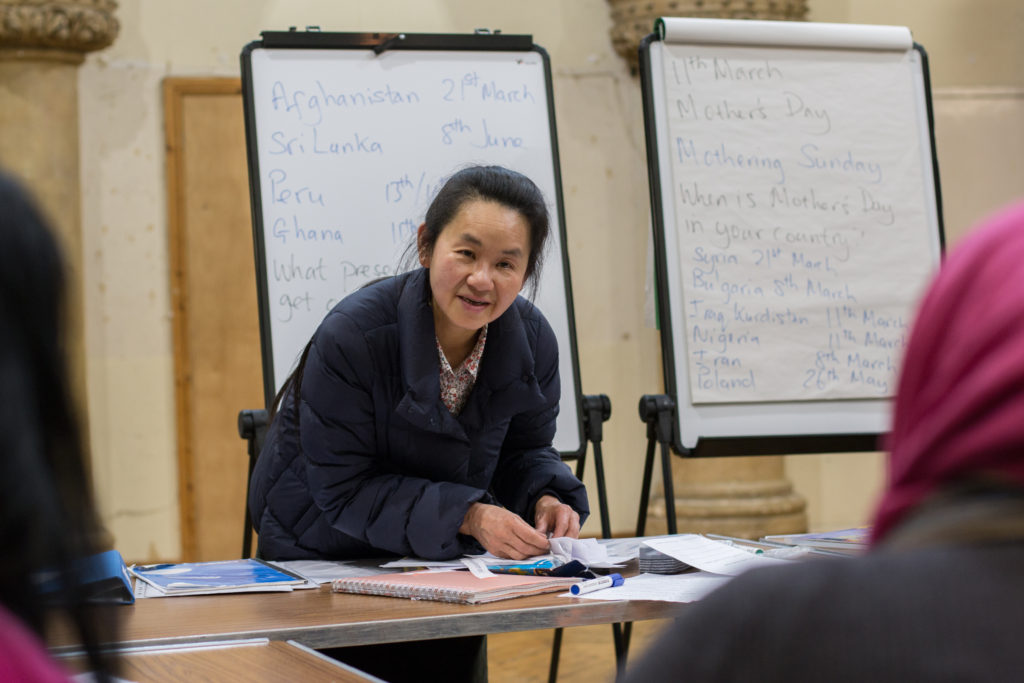
I have to be honest with you and declare at the beginning of this post my language inabilities! Yes, I perhaps represent many English people by declaring that I only speak my native language. So, with this in mind, it’s fair to say that whenever I go abroad I am as good as useless when it comes to understanding another language. I often find myself in restaurants not having a clue what to order, and ending up with something I really did not want!
I can laugh about this, but what about people who, through no fault of their own, have come to live the UK and do not speak or understand English? This is the position many refugees and asylum seekers find themselves in. In some areas access to language support can very limited or non-existent for particular groups. This can lead to already traumatized people becoming even more marginalized. Vulnerable people can find themselves in difficult situations simply because they are unable to understand what is being communicated to them.
When we study the bible, time and time again God makes it clear to us that we need to look after those on the margins of the community in which we reside. In response to this and also to what I see happening in so many communities, I wanted to create opportunities for corps to put on professionally run English classes. Importantly, I had a vision that these classes would be an opportunity not only for English to be taught, but where people from corps and community could come together, enter each other’s cultures, and as a result of this journey, learn more about each other.
With a lot of help from the Legacy Department, funding was identified. As a result several corps have now applied and had funding approved: Bootle, Camberwell, Liverpool Stoneycroft, Manchester Central and Sutton to name but a few. I have had the privilege of visiting some of them and seen for myself the beautiful sight of people from different backgrounds gathered together – some who speak English as a first language sharing time together with those who speak little to no English. It has been uplifting to see community being built, English being learned, and lives being changed for the better.
Captain Annette Booth, Bootle Corps, has used the funding to start some English language classes specifically for those seeking refugee status. She excitedly reports:
“This all started with a prayer and an understanding that our new family ministry would come from people of other cultures. We are currently praying for God to send us children workers so we can start a story time using Christian story books to teach English with our student families and maybe open up to other families in the area.”
Annette and the Bootle Corps have been on this journey for a while, yet she is still blown away by the opportunities that God is presenting to her each day…
“We continue to be amazed at the opportunities we have with our students and their families. We could have never have imagined the challenges, the learning and rich blessings our students would bring as God unfolds his work here at Bootle – but what a privilege is ours!”
Importantly, this money is not just for a select group of corps – it is for any group that is looking to positively impact people in their local community who do not speak English. If you want to find out further information on how to apply, please email me at: jonny,[email protected]
Major Jonny Smith is The Salvation Army’s Intercultural Mission Officer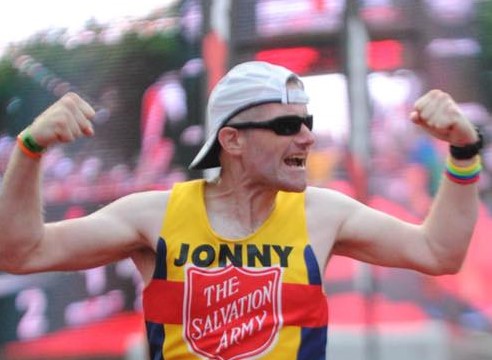

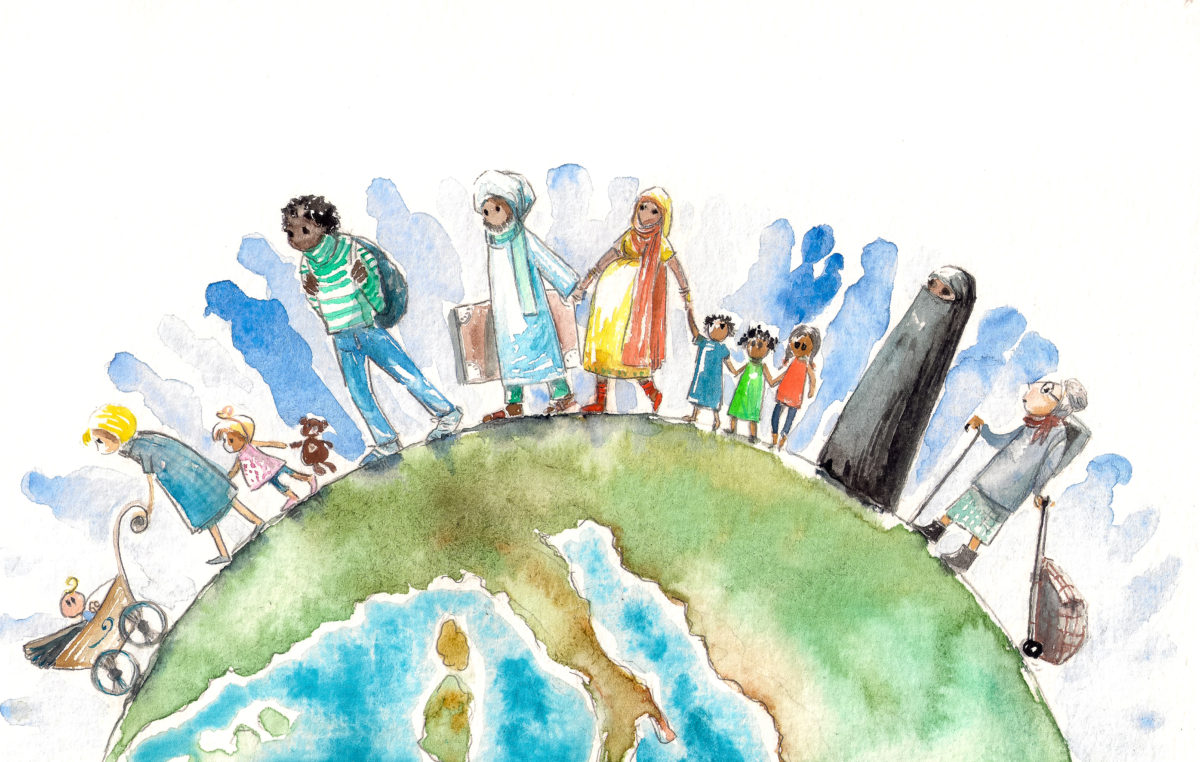
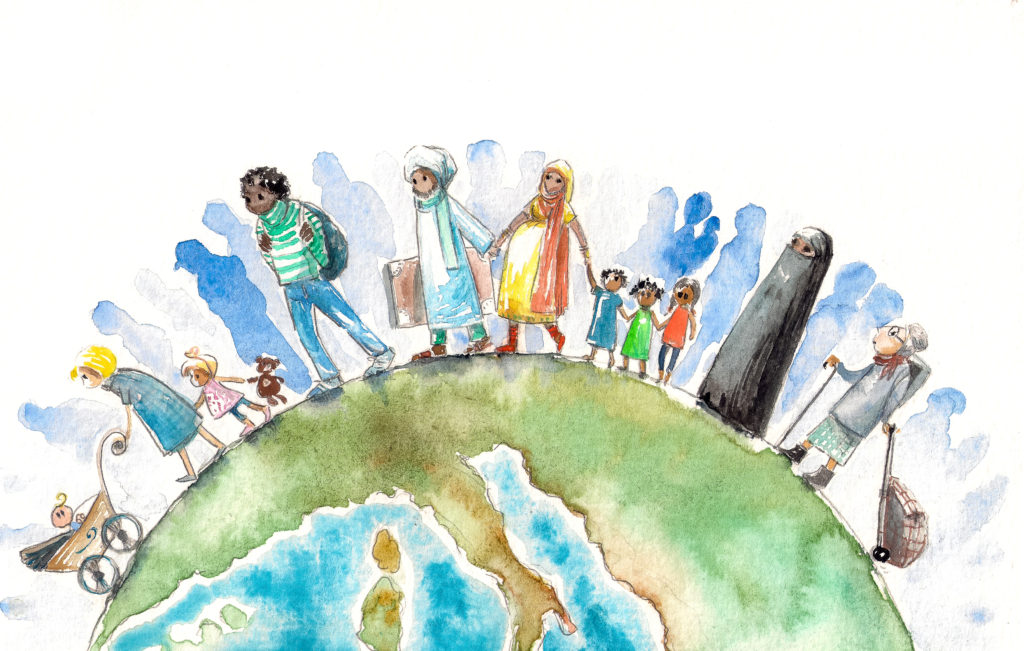 When I was advertising the information evening for the
When I was advertising the information evening for the 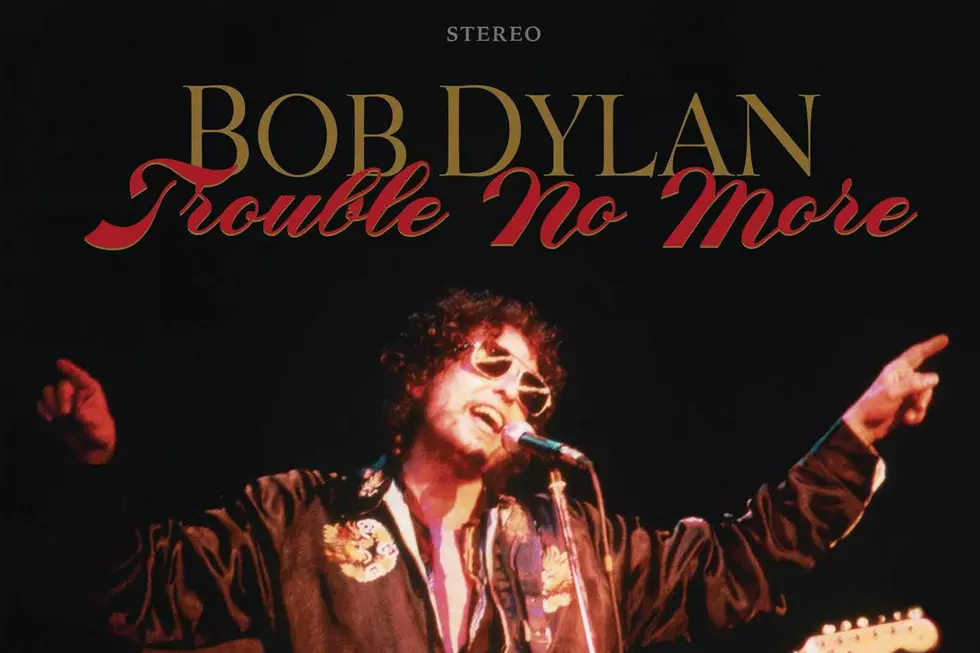
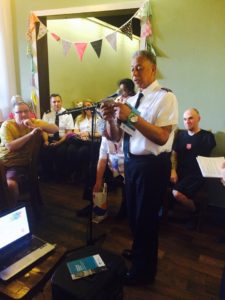 In terms of theological, devotional and motivational material urging us forward in the fight we have never had it so good. The biblical mandate for action is being preached with new fervour in the light of austerity, political upheaval and the refugee crisis. Resources are plentiful – campaign material regularly finds its way into our letterbox, email inbox and social media feeds. Dutifully we follow the instructions to pray, fundraise, get informed and click on the link to another petition website. Online activity in the cause of social change has led to the coining of a new word – ‘clicktivism’. Apparently we’re clicking like we’ve never clicked before. Yet beneath it all comes that nagging question – is any of this really making a difference? It all feels so detached. There’s surely more to justice-seeking than this.
In terms of theological, devotional and motivational material urging us forward in the fight we have never had it so good. The biblical mandate for action is being preached with new fervour in the light of austerity, political upheaval and the refugee crisis. Resources are plentiful – campaign material regularly finds its way into our letterbox, email inbox and social media feeds. Dutifully we follow the instructions to pray, fundraise, get informed and click on the link to another petition website. Online activity in the cause of social change has led to the coining of a new word – ‘clicktivism’. Apparently we’re clicking like we’ve never clicked before. Yet beneath it all comes that nagging question – is any of this really making a difference? It all feels so detached. There’s surely more to justice-seeking than this.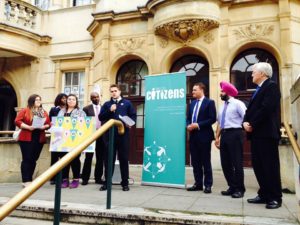 The beginning of justice-seeking is neither an action nor a programme. As an officer once reminded me: ‘We don’t do social justice – we live justly.’ In Salvation Army theology it springs from our holiness teaching, where the inner life of a believer, orientated around a relationship with God, spills over into public life. Faith may be personal but it’s never private. The inner working of our hearts is manifested in hundreds of actions and decisions we make every day. Living a just life begins with how we treat others, who we include, how we use our wealth and time. This applies to those closest to us, neighbours and work colleagues, our corps family and, by extension, the whole of humanity. The rather wonderful truth I’ve discovered is that the more I’ve chased personal holiness the more compelled I’ve been to seek a just world and the more justice-seeking I’ve engaged with the more convicted I’ve been about personal transformation.
The beginning of justice-seeking is neither an action nor a programme. As an officer once reminded me: ‘We don’t do social justice – we live justly.’ In Salvation Army theology it springs from our holiness teaching, where the inner life of a believer, orientated around a relationship with God, spills over into public life. Faith may be personal but it’s never private. The inner working of our hearts is manifested in hundreds of actions and decisions we make every day. Living a just life begins with how we treat others, who we include, how we use our wealth and time. This applies to those closest to us, neighbours and work colleagues, our corps family and, by extension, the whole of humanity. The rather wonderful truth I’ve discovered is that the more I’ve chased personal holiness the more compelled I’ve been to seek a just world and the more justice-seeking I’ve engaged with the more convicted I’ve been about personal transformation.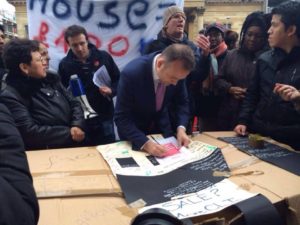 While justice begins with God, it clearly involves people. In the Exodus story the groans of the Israelite slaves rise up before God and initiate a social justice movement (Exodus 2:23–25). In today’s world we constantly hear the groans for ourselves – the low-paid worker at the food bank, the refugee, the homeless and the discriminated against. Most of us long to end such suffering. The uncomfortable truth, however, is that real justice-seeking compels us to move to the edges and experience first-hand the sufferings of others before we can act. There really is no other way. Of course when we get there we discover God is well ahead of us.
While justice begins with God, it clearly involves people. In the Exodus story the groans of the Israelite slaves rise up before God and initiate a social justice movement (Exodus 2:23–25). In today’s world we constantly hear the groans for ourselves – the low-paid worker at the food bank, the refugee, the homeless and the discriminated against. Most of us long to end such suffering. The uncomfortable truth, however, is that real justice-seeking compels us to move to the edges and experience first-hand the sufferings of others before we can act. There really is no other way. Of course when we get there we discover God is well ahead of us.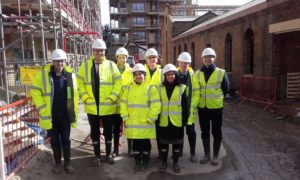 Once personally involved in the sufferings of others, it is tempting to offer charity and stop there. We meet the need, bandage the wound and move on. Most likely people will call us saints.
Once personally involved in the sufferings of others, it is tempting to offer charity and stop there. We meet the need, bandage the wound and move on. Most likely people will call us saints.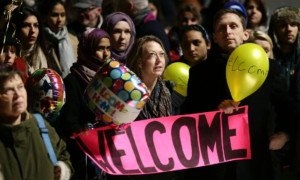 The final stage is to move from a protest voice on the margins into the corridors of power, where decisions are made. Forcing your way into this space can happen only when we organise ourselves to be powerful enough for decision-makers to take notice. This is the work of politics – not party politics – but community-based, people politics. And this is where corps and centres come into their own. After all, we know our communities and, in most cases, we have been a constant presence for generations. Almost every local expression is connecting directly with those who suffer injustice and, crucially, we are collectives who exist to transform the world! In a society where institutional
The final stage is to move from a protest voice on the margins into the corridors of power, where decisions are made. Forcing your way into this space can happen only when we organise ourselves to be powerful enough for decision-makers to take notice. This is the work of politics – not party politics – but community-based, people politics. And this is where corps and centres come into their own. After all, we know our communities and, in most cases, we have been a constant presence for generations. Almost every local expression is connecting directly with those who suffer injustice and, crucially, we are collectives who exist to transform the world! In a society where institutional By Nick and Kerry Coke
By Nick and Kerry Coke


 e is no justice to be done from a distance. Like the Good Samaritan, they go out of their way and take risks to recognise and know the suffering of others. There are no boundaries that they will not cross, nor comforts they will not dispense with in order to build relationships and understand others. They know that first and foremost change begins with relationship and relationship can only begin with presence.
e is no justice to be done from a distance. Like the Good Samaritan, they go out of their way and take risks to recognise and know the suffering of others. There are no boundaries that they will not cross, nor comforts they will not dispense with in order to build relationships and understand others. They know that first and foremost change begins with relationship and relationship can only begin with presence.